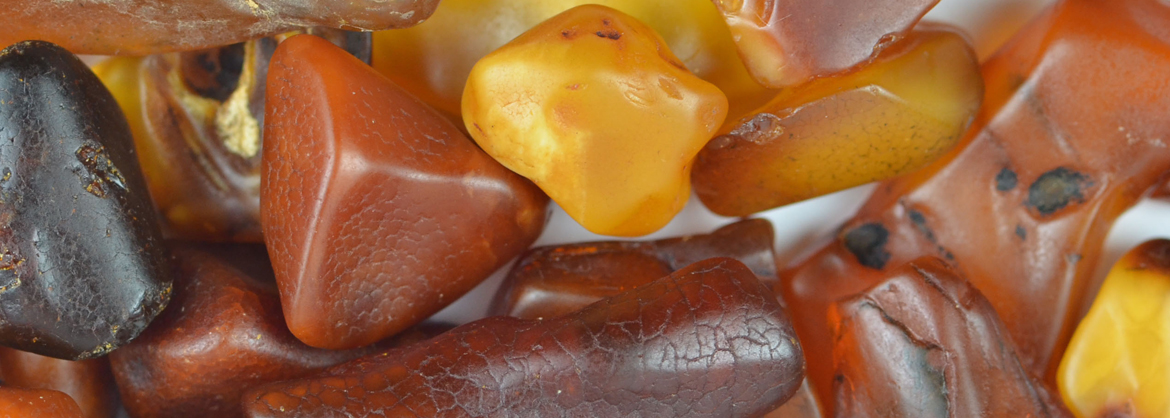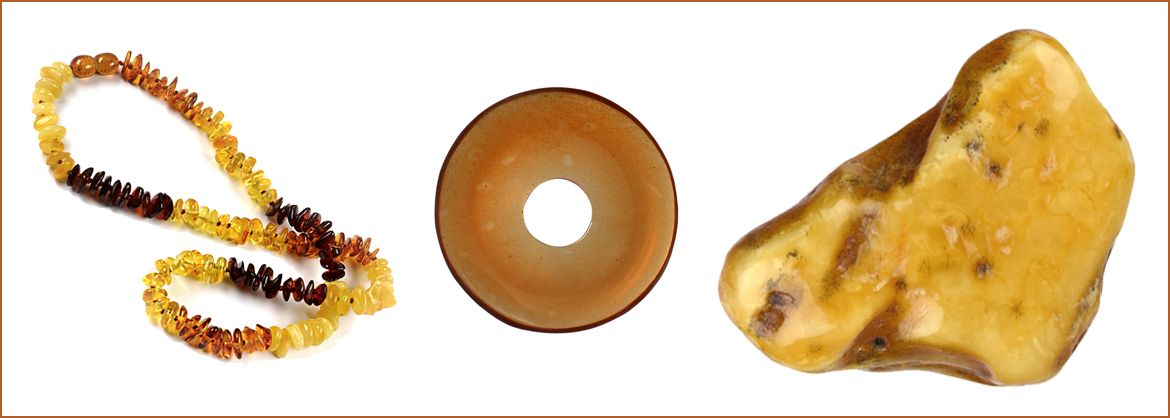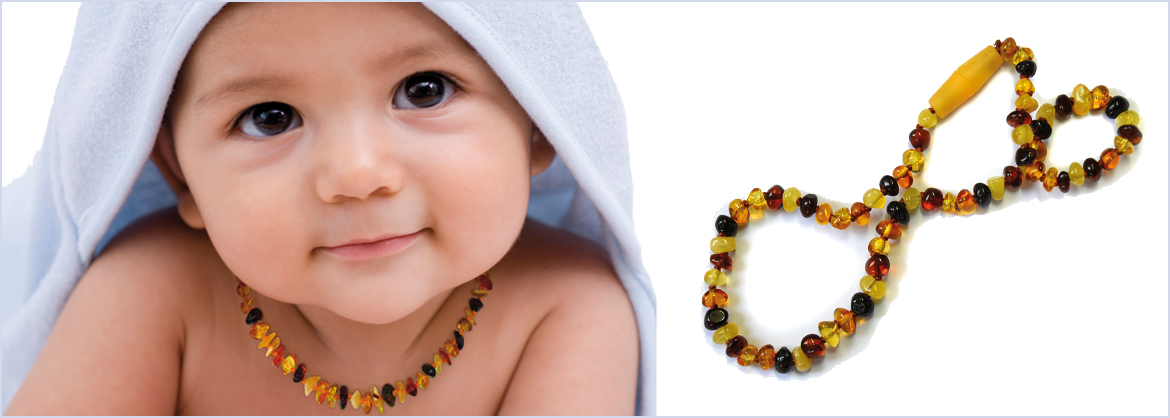
Amber - Meaning, effect and applications
Amber is a wonderful companion with its many different golden-yellow hues. Amber is the stone of cheerfulness and confidence. it strengthens the faith in ourselves and the forces residing in us. Also once carefree to enjoy the day, teaches us the fossil tree resin - but without completely losing sight of old traditions and values. With this balance between ease and preservation we are well equipped to flexibly and creatively master the challenges of everyday life.
Mineralocial profile of Amber
Chemical formula: Mixture ver schiedener resins u.a., on average 78% C, 10% H, 11% O
Mineral Class: Amber is not a mineral, but an organic compound
Formation: Fossil resin, aged and hardened in millions of years, in nodules, boulders, grains
Color: waxy to honey-yellow, cloudy due to admixtures, rarely bluish, green
Gloss: Waxy luster
Crystal system: amorphous
Mohs hardness: 2 to 2.5
Cleavability: No cleavage, conchoidal fracture, brittle
Localitier, main supplier countries: Baltic States, Dominican Republic, Indonesia, Mexico
Appearance: bulbous grains, partly.T. with animal or plant inclusions (inclusions)

History of Amber use
Astrology knows amber as a mineral that gives Cancer-born security and confidence.
Baltic amber is the most famous and best researched amber in the world. It also has the longest known cultural history and has always fascinated people. As early as the Early Stone Age, about 10,000 years ago, Baltic amber was used to make beads, pendants and other jewelry. Since then, it has been used as a status symbol and jewelry as well as for cultic objects and as an incense. In addition to its purely decorative use, amber has always been associated with myths and has been attributed magical and healing powers in folk medicine. Documented are numerous findings of ritual objects, amulets and valuable grave goods, which underline this cultic character of amber.
The traditions of amber use in Europe go far back into long-forgotten millennia. The amber from the sea revered by the Baltic people was considered sacred and the knowledge of the powers of amber was passed on orally from ancestors to children and grandchildren on the Baltic coast. Thus, amber was hung above the crib of newborns as a blessing from the revered sea and sun gods, as well as a protection against evil spirits and misfortune. Nowadays, a mother and child combination is also popular, with both the mother and the child wearing an amber necklace. Healing and protection rituals are often performed with amber, as it is said to give cheerfulness and joy of life. It should be worn for a long time and without interruption.
